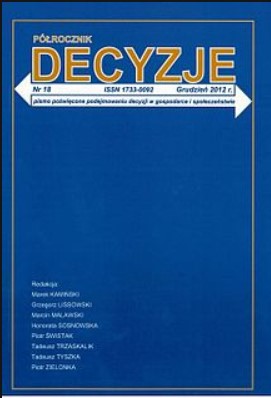O DWÓCH TYPACH RANDOMIZACJI W DECYZJACH DYSTRYBUCYJNYCH
ON TWO TYPES OF RANDOMIZATION IN DISTRIBUTIVE DECISIONS
Author(s): Wojciech ZałuskiSubject(s): Epistemology, Philosophy of Law, Methodology and research technology
Published by: Akademia Leona Koźmińskiego
Keywords: justice; normative reasons; psychological reasons; egalitarian randomization; proportional randomization; utilitarianism; the Number Problem;
Summary/Abstract: The purpose of the article is to provide a comparative analysis of two types of randomization – egalitarian and proportional – in distributive decisions, with a view to determining conditions in which they can be applied. It is argued in the article that justice reasons in favor of egalitarian randomization should be construed broadly (as embracing not only the situation of indifference – the equal satisfaction of a given criterion, but also the situations of the lack of criteria or their incommensurability), and that they are stronger than utilitarian reasons. It is also argued that the conflict between justice ex-ante and justice ex post may take an acute form only in the case of proportional randomization, which is why this type of randomization can be applied relatively rarely – only in two situations: if the distribution is repeatedly made and/or if the differences between claims of the candidates (for a good/burden being distributed) are not substantial. Some other differences are also pointed out in the article, e.g., that while proportional randomization must always be statistical, egalitarian randomization may be at times epistemic. It is also argued that in some circumstances (e.g., in the context of the so-called Number Problem) doubts may arise as to which type of randomization should be applied, and the applications of both types may prove to be equivalent.
Journal: Decyzje
- Issue Year: 2019
- Issue No: 31
- Page Range: 29-56
- Page Count: 28
- Language: Polish

